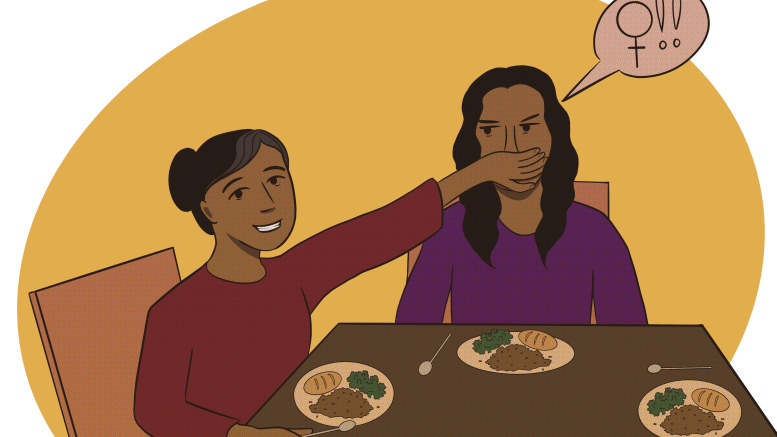I was told I was a very emotional child while growing up. When something or someone upset me, I argued, and tears shortly followed the argument.
I was soon diagnosed as emotional because I’m a feminist — someone who likes to pick fights by finding inequality and oppression in everything that happens around them.
I have been offered multiple remedies to my activist disease over the years. Ignoring whoever is saying problematic things to me, accepting that the person who is winding me up is preparing me for the world and bigger bullies, meditation and anger management classes were all possible cures.
I think I genuinely tried some of them because, after all, I did not like being vulnerable in front of people who were clearly hurting me by intentionally saying misogynistic, casteist, homophobic, racist and classist things. I did not feel safe crying or “losing control.”
Perhaps my experience constantly being wound up is one of the reasons why the works of Sara Ahmed, scholar and writer, influenced me so much. Her essay “Feminist Killjoys (And Other Willful Subjects)” was a before-and-after event of my life. It changed my brain chemistry.
In this essay, Ahmed talks about the narrative that feminists are disagreeable, perpetually angry and party-pooping hotheads. She draws examples from her life, specifically at dinner tables, where very uncomfortable conversations happen.
Ahmed shares the discomfort of dealing with sexism while being blamed for ruining dinner and causing disruptions. If you are squirming in your seat while reading this, you know exactly what Ahmed is talking about. You know, the Thanksgiving conversations that started as a discussion but led to you shouting — sometimes crying if you are like me — and ending in remarks like, “Woah, she needs to chill.”
My mom used to prepare me for big family gatherings by telling me not to pay heed to the sexist jokes that would surely be made. It broke her heart to see four to five fully grown men shouting at her daughter because she disagreed with their hateful politics. She was one step away from clamping my mouth shut with her own hand.
But I questioned, argued and cried every holiday. Since they were all older than me, it was also quickly established that I am not respectful to my elders. I wish I had taken my mother’s advice, because I miss being able to enjoy my porotta and chicken curry or my biryani in silence.
It hurts, because these people know you. You love them, and they claim they love you. How much I wish I didn’t have to clench my ice-cold fists, ignore my pounding heart and heated abdomen, and fight against the one tear drop that is waiting to jump from my eye.
But I did: I fought, I cried over and over again. Because Ahmed is right: “To be involved in political activism is to be involved in a struggle against happiness,” and political activism begins at our dinner tables.
I bet those who wound me up didn’t think I would write about my emotions in a university newspaper being read by thousands of people. I don’t think they ever thought I would find my community and that I would thrive in my female friendship and camaraderie. I bet they didn’t think that I would be mostly happy and content because, in their world, feminists are not happy. I will take that win.
Holidays are nearing. If you know you will get triggered, please ensure you have at least one person in the room supporting you. Sometimes, glancing at your sister shaking her head at the other side of the table is enough for you to double down and ignore nasty, sexist middle-aged men, no matter how vulnerable that may make you.
To all my sister killjoys, to those who stayed and to those who left: you let me remain a disagreeable woman, and I’m thankful.



